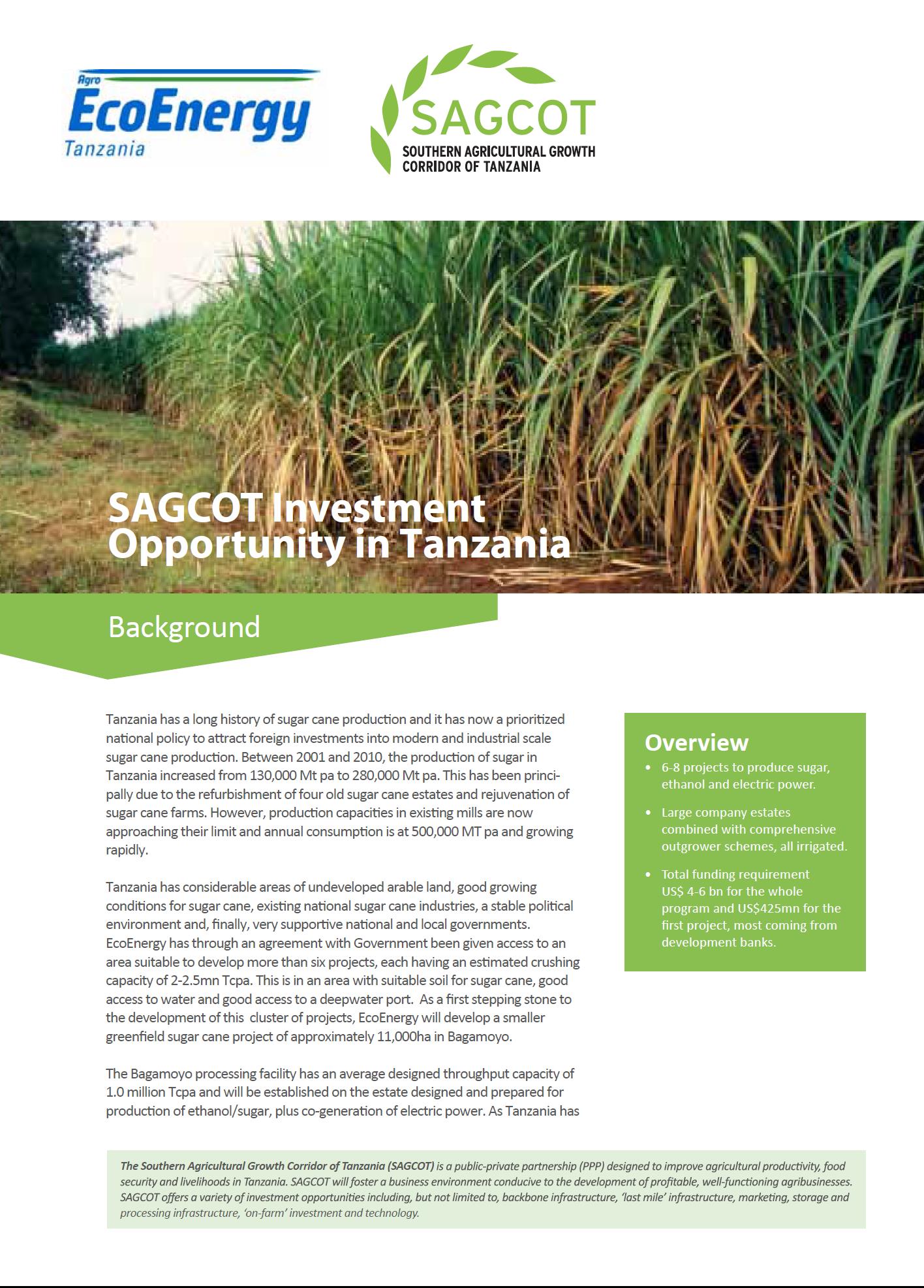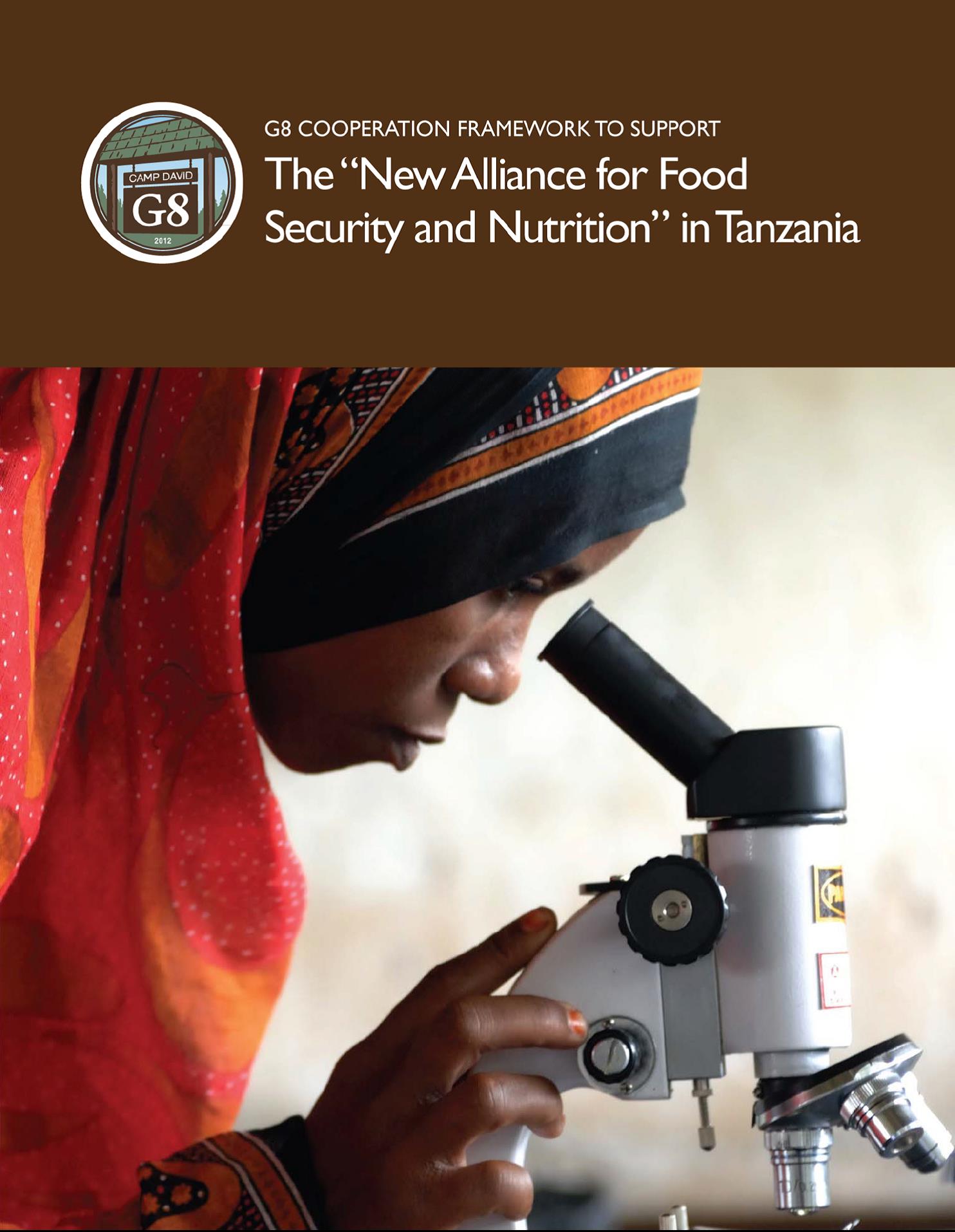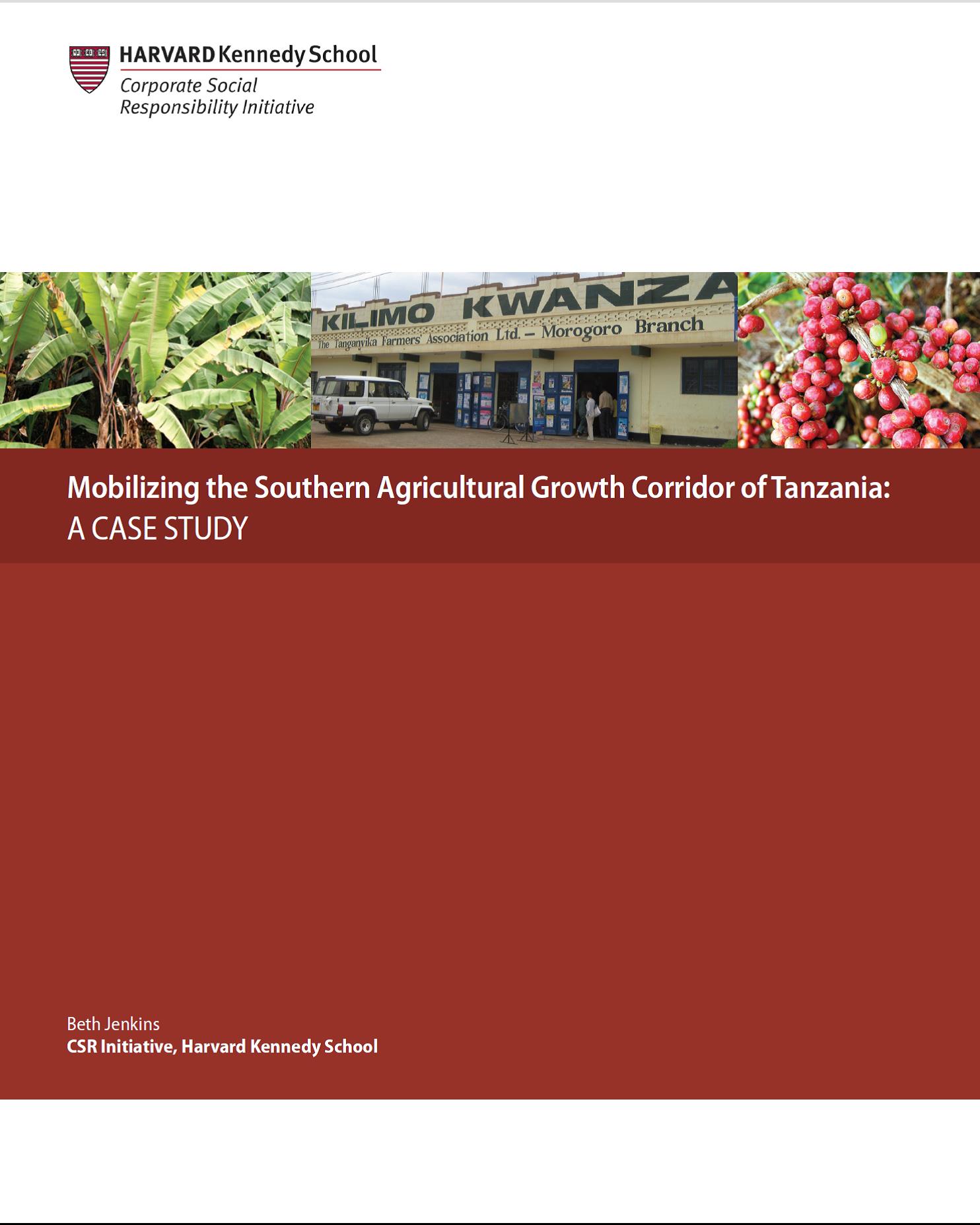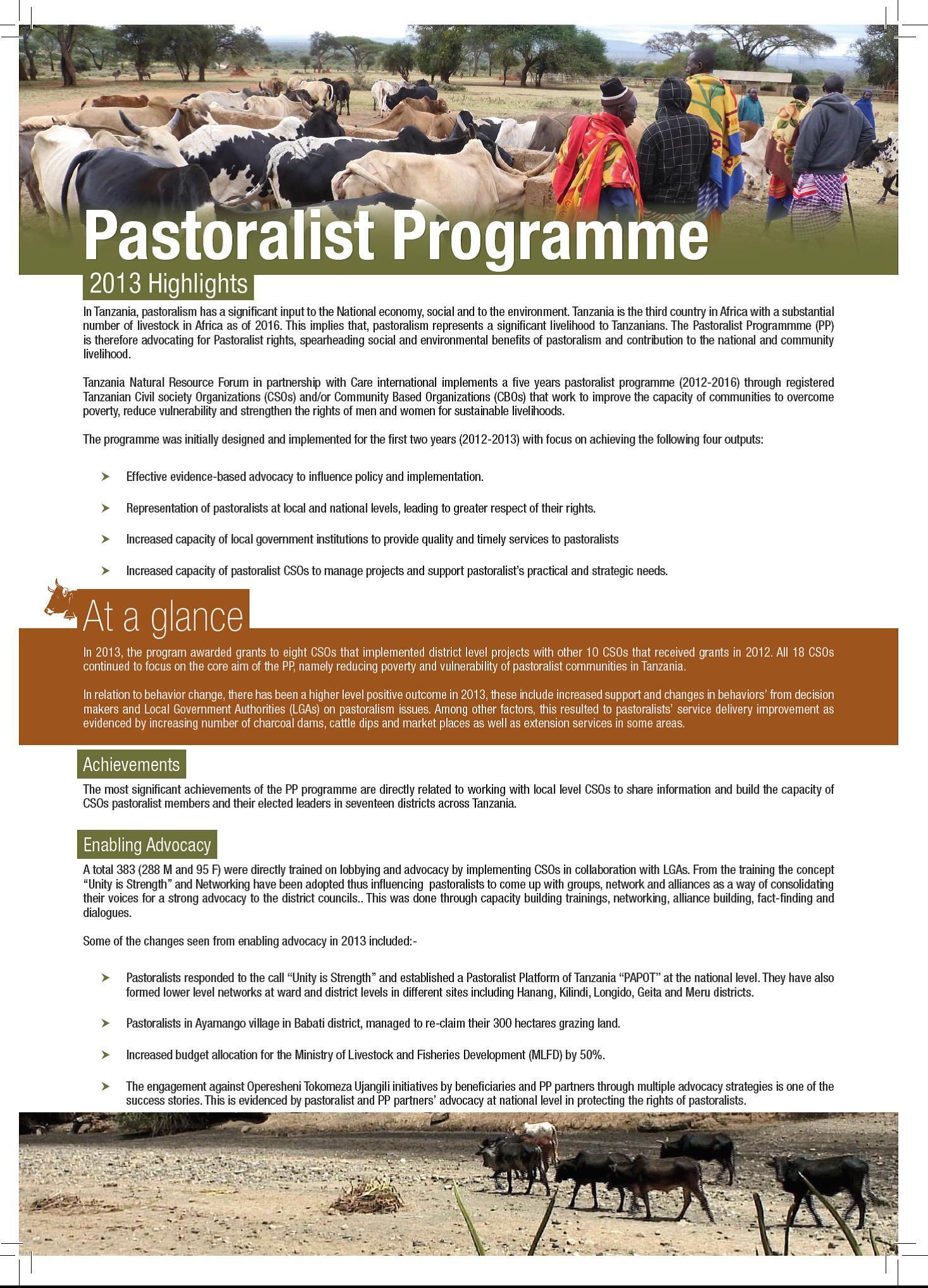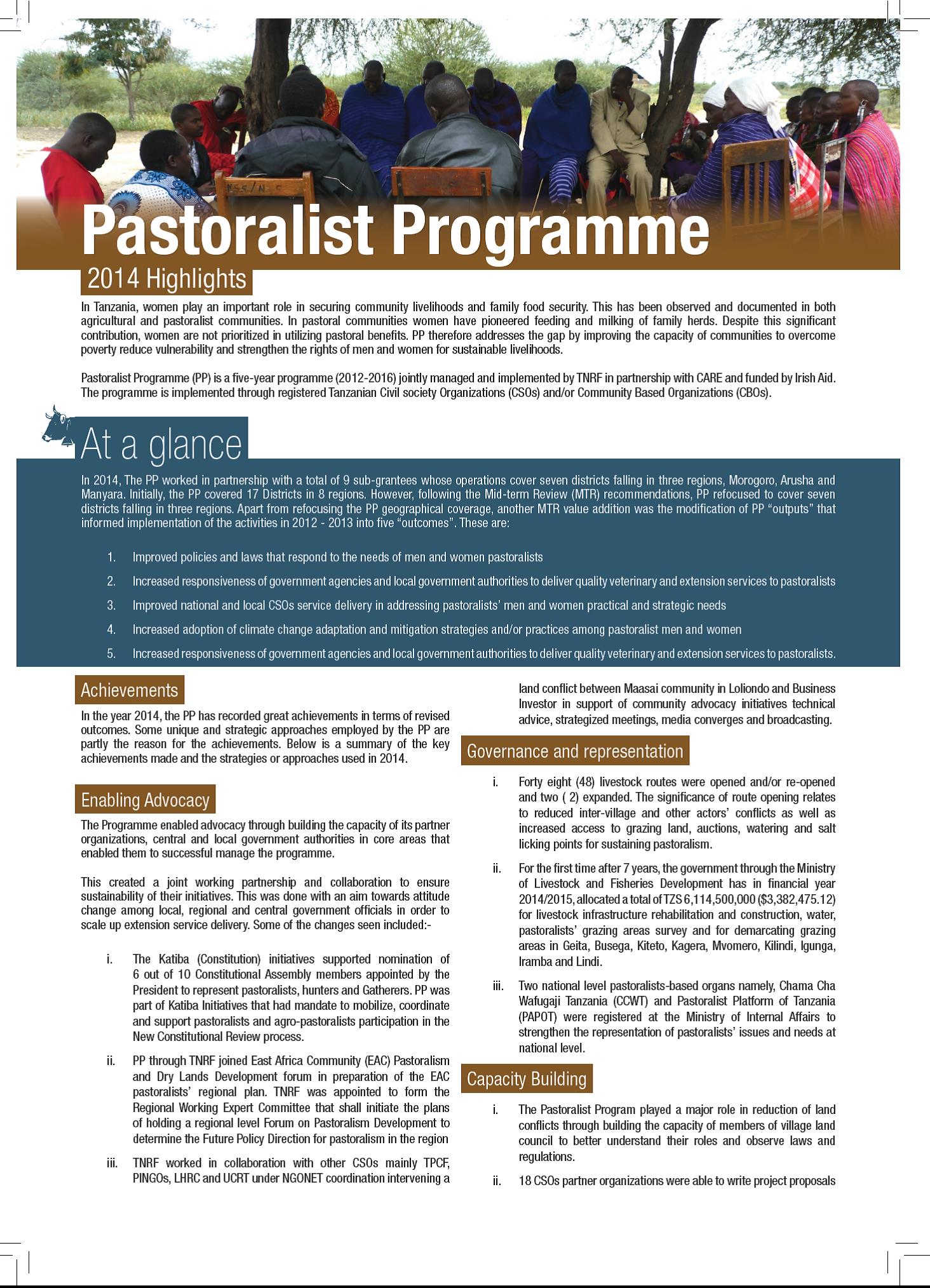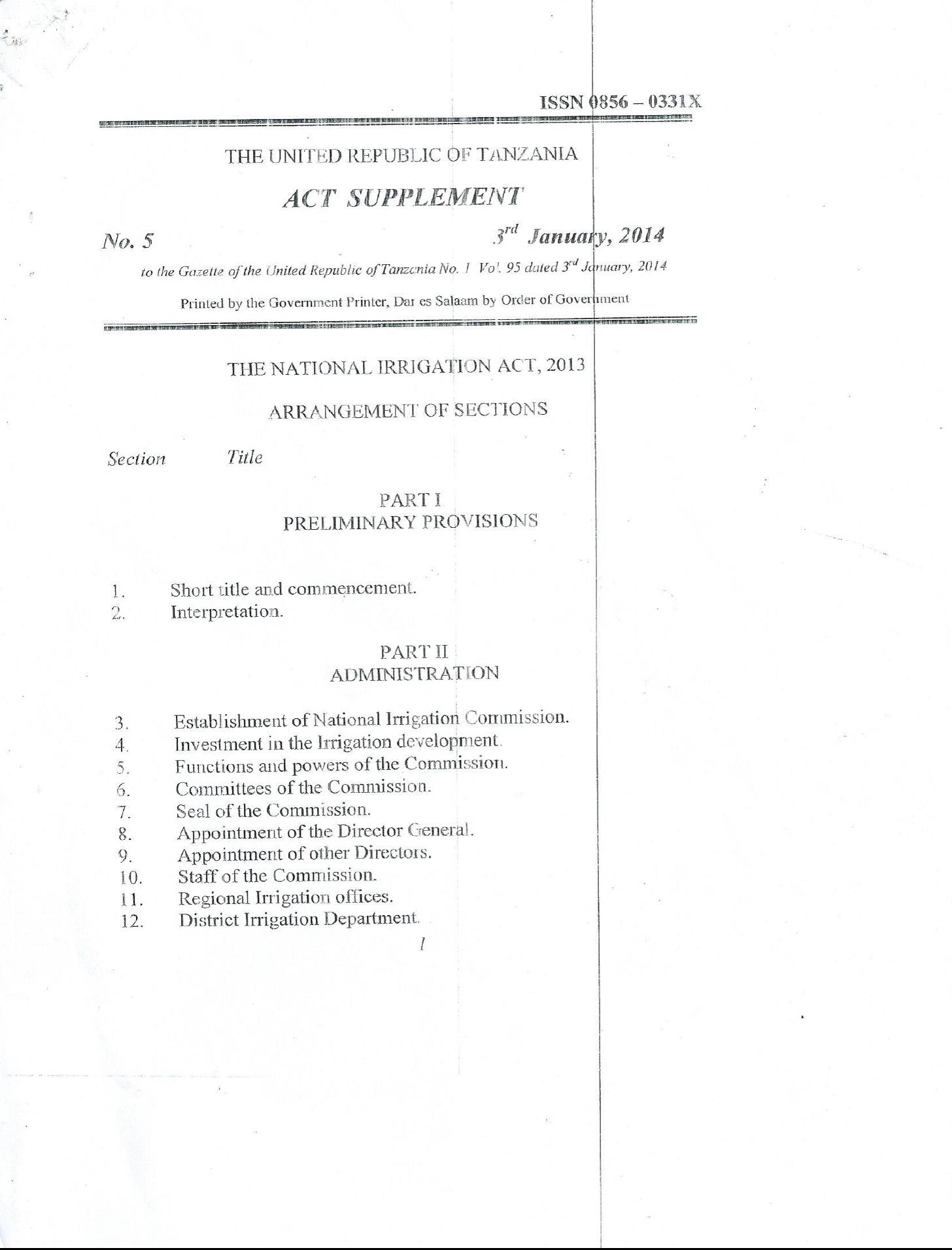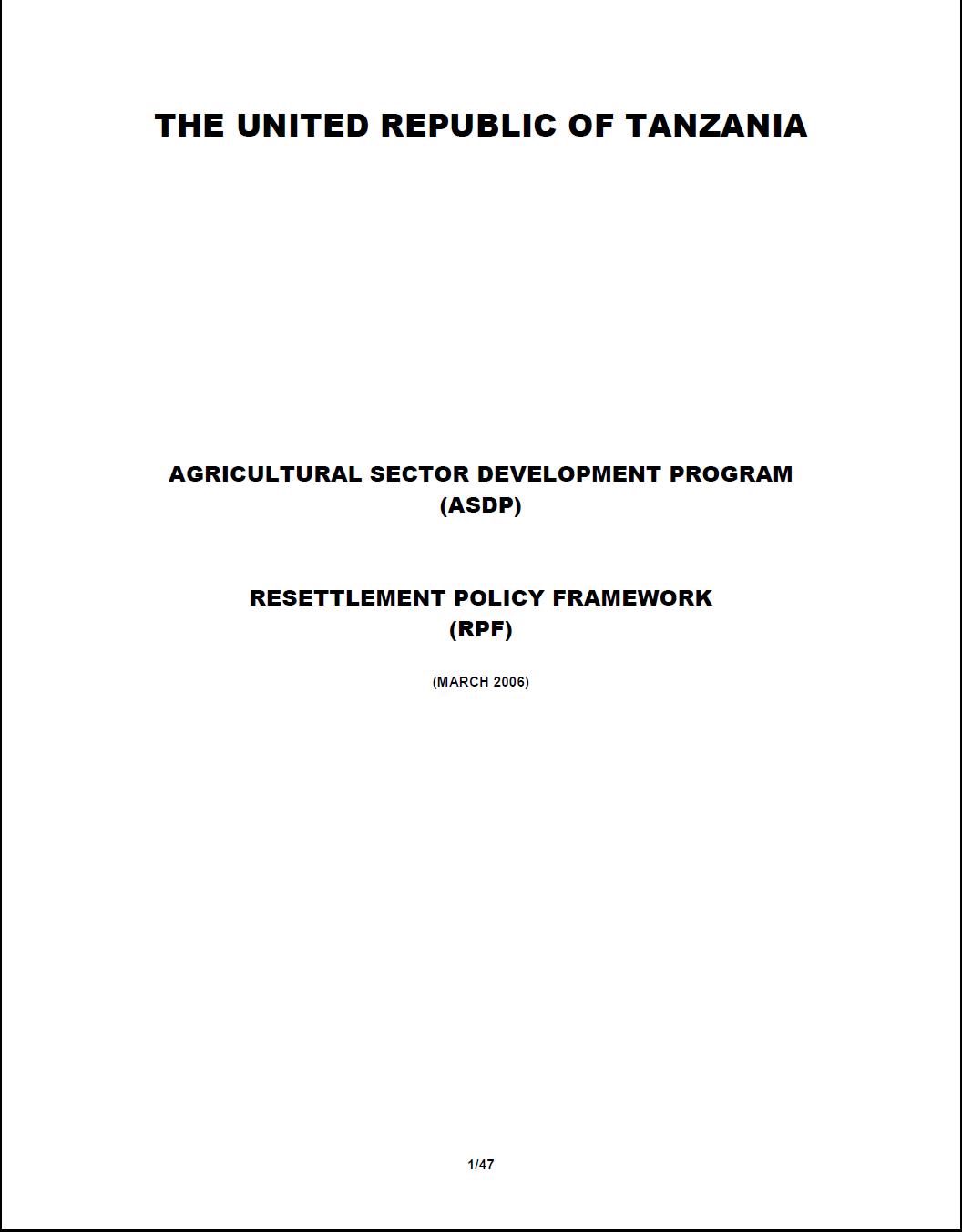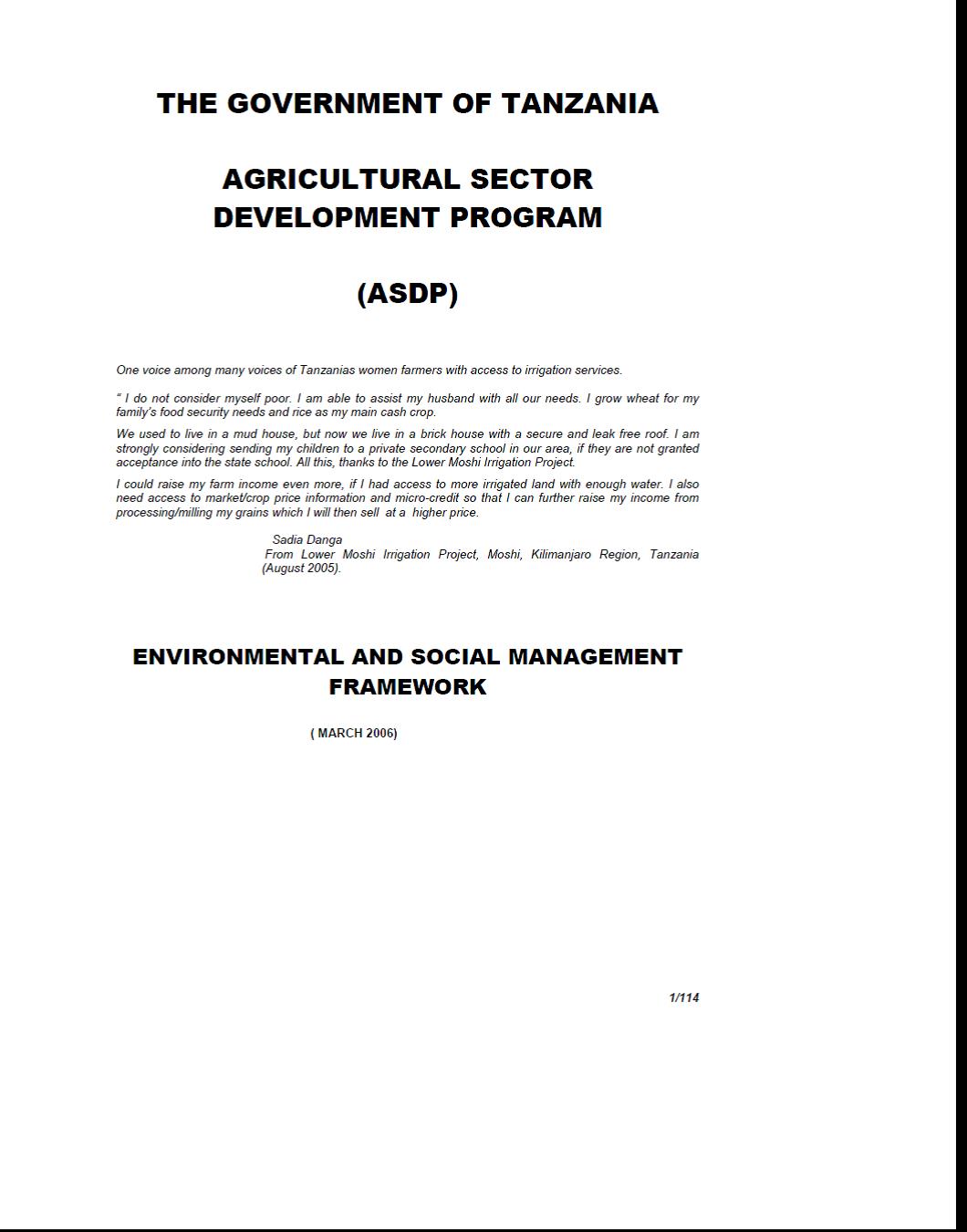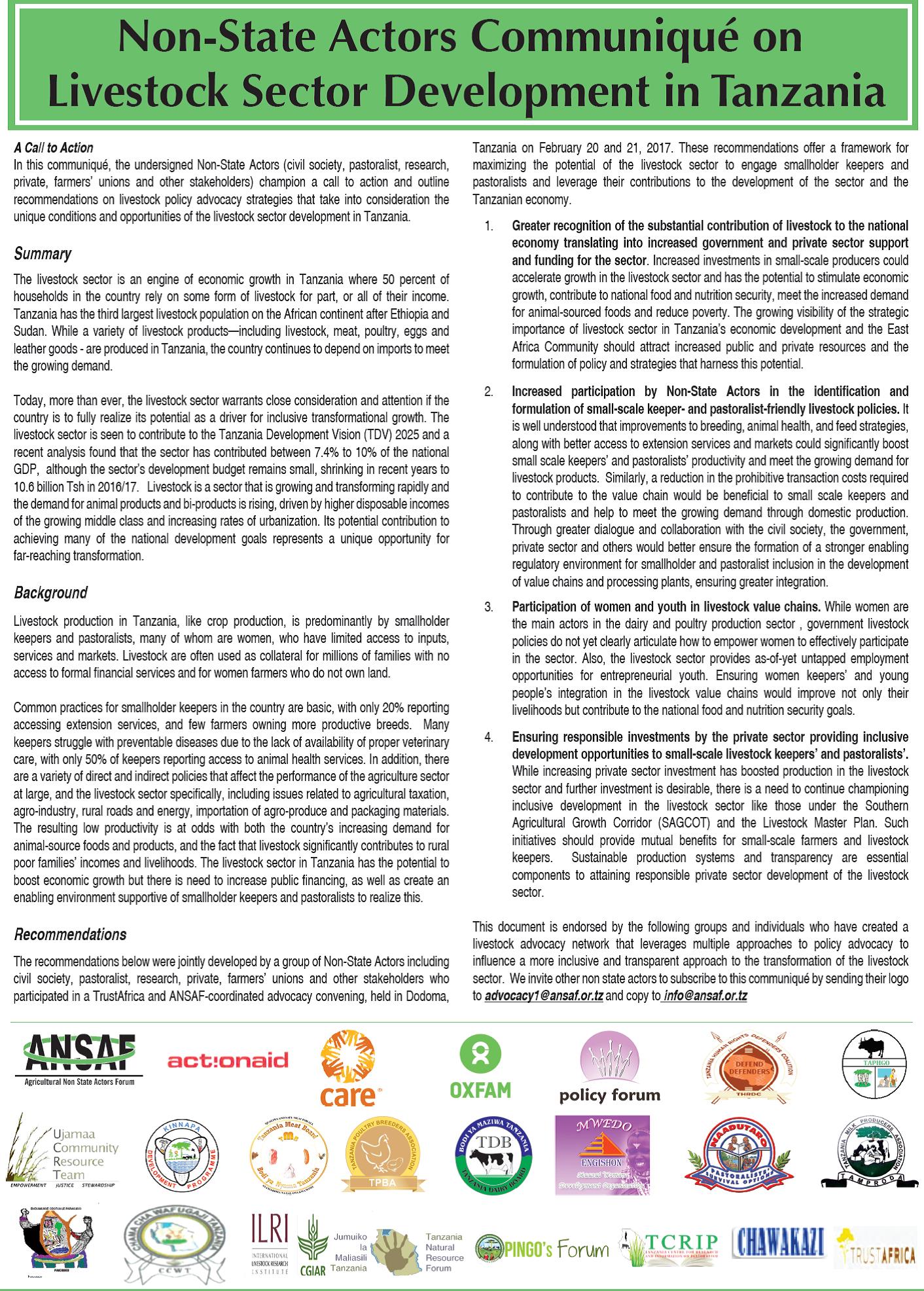SAGCOT Investment Opportunity in Tanzania
Tanzania has a long history of sugar cane production and it has now a prioritized national policy to attract foreign investments into modern and industrial scale sugar cane production. Between 2001 and 2010, the production of sugar in Tanzania increased from 130,000 Mt pa to 280,000 Mt pa. This has been principally due to the refurbishment of four old sugar cane estates and rejuvenation of sugar cane farms. However, production capacities in existing mills are now approaching their limit and annual consumption is at 500,000 MT pa and growing rapidly.

